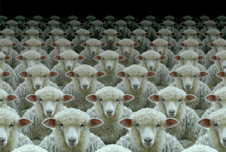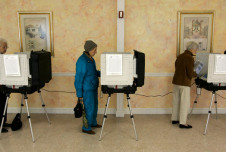Remember high school?
You probably didn’t think joining the debate club would change your life. You almost certainly didn’t connect the drama club to the future of American democracy. Yet recent research shows that extracurricular activities may cause youth to develop into politically active adults.
Researchers Daniel McFarland and Reuben Thomas analyzed the responses to two surveys that tracked people from their early adolescence through their mid-twenties. In a paper published in the American Sociological Review, McFarland and Thomas report that when teens belonged to certain youth organizations—including service clubs, student council, and even drama and musical groups—they were more likely as adults to participate in political activities such as voting, performing community service, and joining a political campaign. This was true regardless of the teenagers’ class or social background.
The authors argue that public speaking, performance, debate, and community service imbue youth with the skills, interests, relationships, and communal identities necessary for adult political behavior. Interestingly, they found that for the most part, playing team sports had no effect on later political activity. One sport—cheerleading—actually had a negative association, “suggesting that the activity may be generating self-conceptions (possibly gender-related) that counter the positive political efforts occurring in other activities.” The authors also found that sporadically volunteering on political and environmental campaigns had less impact on adult political activity than consistent community service.
For years, social scientists have documented declines in Americans’ political participation and group membership. This research suggests that encouraging young people to get involved in extracurricular activities can help revitalize civic engagement. Indeed, their results are especially compelling at a time when schools continue to cut music and drama clubs. McFarland and Thomas argue that not only should these programs be preserved, they should be extended to homeschooled and underprivileged students. In this way, they write, schools can nurture “more communally oriented people who are engaged, critical citizens willing to work together to improve our pluralistic democratic society.”




Comments